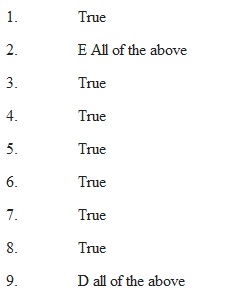


Q QUIZ #5 SCI-120: HUMAN ECOLOGY (Ch 9) 1. T/F: The term Anthropocene (Gk anthropos 'human' and kainos 'recent') is now used to describe the present geological period characterized by human activities becoming a “force of nature” having a huge global impact on Earth’s systems. 2. The industrial revolution: a. Unleashed humans as a force of nature. b. Led to the Paradigm of Limitless Growth. c. Was based on cheap fossil fuel. d. Led to increased social equity. e. All of the above. f. All of the above except “d”. 3. T/F: The belief that growth in the human economy is not limited by the productivity of the land is the central driving belief of the Anthropocene. 4. T/F: “The Paradigm of Limitless Growth” includes the idea that human ingenuity will circumvent any environmental limits that block unlimited economic growth. 5. T/F: We can live well in the Anthropocene by following “The Paradigm of Limitless Growth”. 6. T/F: We have entered an “Urban Age” where the most typical habitat for humans is the city. 7. T/F: Whatever gains technological innovation makes in efficiency per unit of service is always overcome by insatiable consumer demand. 8. T/F: Social-Ecological processes are currently at risk, or are even above the threshold limit where their rate of usage is unsustainable. 9. Which of the following statements are true? a. Currently, additional food production for the rapidly growing global population is causing the rapid destruction of natural ecosystems for conversion to cropland and pasture. b. Further expansion of agriculture today, would push it into marginal lands requiring large energy inputs and risking soil degradation. c. Expansion of agriculture today, would come at the expense of the production of other resources, such as woodland for the production of timber. d. All of the above are true. e. “b” and “c” above are true. ? 10. The complete human food production chain accounts for about: a. 10% of total greenhouse gas emissions. b. 20% of total greenhouse gas emissions. c. 33% of total greenhouse gas emissions. d. More than ½ of total greenhouse gas emissions. e. ¾ of total greenhouse gas emissions. 11. Human caused carbon dioxide emissions: a. are mostly caused by the burning of coal, oil (including gasoline), and natural gas. b. make up an insignificant portion of the greenhouse gases in the atmosphere. c. are causing the oceans to acidify. d. are leading to serious damage to oceanic plankton at the base of marine food chains. e. All the above except “b”. f. “a”, “b”, and “c” are true. 12. T/F: Our modern global industrial food systems promote social justice. 13. In our global free market food system: a. locally produced food is not necessarily devoted first to satisfying local consumption needs. b. global social justice is achieved. c. farming peoples in distant agricultural lands may be forced to eat their own seed stock to avert starvation. d. distant affluent communities can outbid local communities for their resources. e. “a”, “c” and “d” above are true. f. None of the above are true. 14. Poor communities in developing countries: a. are particularly vulnerable to changes driven by affluent countries that exceed planetary limits. b. are reaping great benefits from the global industrial food system. c. are increasing in wealth due to the global industrialized food system. d. are disappearing rapidly due to globalization. 15. T/F: We have not yet reached the limits of the planet’s capacity to sustain us at current population and consumption levels. 16. T/F: Within the “Paradigm of Limitless Growth”, arguments to improve the environment become arguments to first improve the economy. 17. In the global industrial system under the “Paradigm of Limitless Growth”: a. social equity is improved. b. many environmentally damaging practices manifest as cheaper products, so the economic signal to the paradigm is actually positive and so provides a reinforcing feedback. c. balancing feedbacks ensure that environmental degradation of distant lands does not occur. d. consumption is linked to awareness of social justice in a balancing feedback. 18. T/F: Living well in the Anthropocene requires individual behavior to be globally just and sustainable, despite the individual not knowing the full consequences of his or her actions. 19. T/F: According to Dyball & Newell, we will need a new paradigm of “Sufficiency” that is an alternative to the “Paradigm of Unlimited Growth” if we are to avoid collapse. 20. T/F: According to Dyball & Newell, if global tipping points are reached, and collapse ensues, affluence will not protect us from the outcomes.
View Related Questions